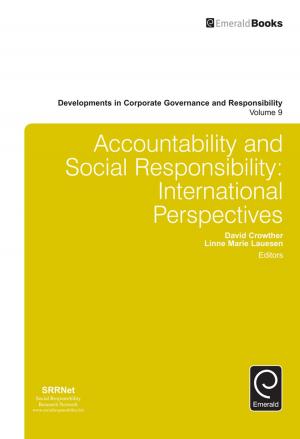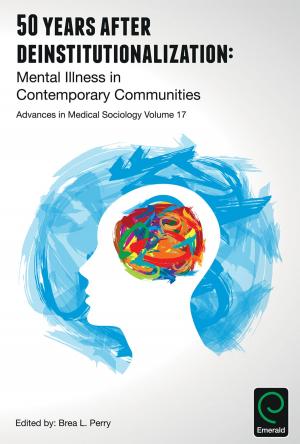The Contribution of Fiction to Organizational Ethics
Business & Finance, Business Reference, Business Ethics| Author: | ISBN: | 9781783509485 | |
| Publisher: | Emerald Group Publishing Limited | Publication: | September 5, 2014 |
| Imprint: | Emerald Group Publishing Limited | Language: | English |
| Author: | |
| ISBN: | 9781783509485 |
| Publisher: | Emerald Group Publishing Limited |
| Publication: | September 5, 2014 |
| Imprint: | Emerald Group Publishing Limited |
| Language: | English |
Alasdair MacIntyre described humans as storytelling animals. Stories are essential to any organization. They help organizations define who they are, what they do, and how they do it. Tom Peters and Robert Waterman, in explaining their well-known search for excellence in leading organizations, wrote how they "were struck by the dominant use of story, slogan, and legend as people tried to explain the characteristics of their own great institutions" and how those "convey(ed) the organization's shared values, or culture". Indeed there is the distinct possibility of those inherited stories, slogans and legends creating ethical organizations. Fiction incorporates not only literature but movies, television, poetry and plays. Friedrich Nietzsche who has been described, perhaps unfairly, as not a philosopher but a writer described fiction as a lie which enabled us to see the truth. Nina Rosenstand argued that such fiction can "be used to question moral rules and to examine morally ambiguous situations". In this issue we consider how fiction has questioned the moral rules, and examined such situations, and in doing so how it has contributed to our understanding of organizational ethics.
Alasdair MacIntyre described humans as storytelling animals. Stories are essential to any organization. They help organizations define who they are, what they do, and how they do it. Tom Peters and Robert Waterman, in explaining their well-known search for excellence in leading organizations, wrote how they "were struck by the dominant use of story, slogan, and legend as people tried to explain the characteristics of their own great institutions" and how those "convey(ed) the organization's shared values, or culture". Indeed there is the distinct possibility of those inherited stories, slogans and legends creating ethical organizations. Fiction incorporates not only literature but movies, television, poetry and plays. Friedrich Nietzsche who has been described, perhaps unfairly, as not a philosopher but a writer described fiction as a lie which enabled us to see the truth. Nina Rosenstand argued that such fiction can "be used to question moral rules and to examine morally ambiguous situations". In this issue we consider how fiction has questioned the moral rules, and examined such situations, and in doing so how it has contributed to our understanding of organizational ethics.















